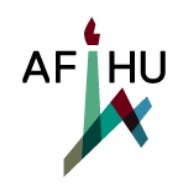American Friends of the Hebrew University
When my parents decided to give my two sisters and me names that embodied the idea of light (Noga is Hebrew for glow and for the planet Venus), it symbolized their hope and determination for us.
That’s because each of us was born albino, with varying degrees of serious visual impairment.
I can’t see clearly more than 8 inches in front of my face, I have strong sensitivity to sunlight, and I have no pigmentation whatsoever. My skin and hair are white, and my eyes are shades of blue, purple, and gray.
But I haven’t let that get in my way.
I grew up in a religious family in the northern Israeli town of Hazor HaGalilit, and my father likes to say that God does not give people challenges they cannot meet. For me, that’s always meant that I would not let my visual impairments impede me.
I skipped a grade in elementary school, graduated high school at 16 and did a year of Israeli National Service working with high school students who needed academic help. I just finished my first year at the Hebrew University of Jerusalem, where I’m double-majoring in accounting and psychology.
But I could not have gotten where I am without the help of others.
At home, my parents helped me navigate the world. I literally had never been on a public bus before I moved to Jerusalem to start college. If I needed to go someplace, they’d just drive me.
At the Hebrew University, the Center for the Blind has been my pillar of support, providing me with large-print reading materials, a reader to read aloud course material I cannot read myself and tutoring to help me catch up on gaps in my learning because I can’t see graphics the professor shows at the front of the classroom. During exam time, I can get a private room so a reader can read questions aloud to me from the test without disturbing other students.
Crucially, the university has also granted me a scholarship that has enabled me to spend my freshman year focused on my studies without having to worry about working to make enough money to meet my expenses.
I’m one of many scholarship students at Hebrew University. These scholarships make it possible for students from all sorts of backgrounds to thrive at school in ways that wouldn’t be feasible without financial assistance for tuition or expenses. Among the categories of eligible recipients are students from socioeconomically challenged backgrounds, those from Israel’s peripheral North and South who are the first in their families to go to college, Ethiopian Israelis, combat veterans, Haredi Orthodox students from high schools that did not teach core academic subjects and others.
My scholarship came through Ale, the Israeli Association for the Blind, thanks to an American couple who visited the Center for the Blind at the university, learned of the importance of supporting students like me and were moved to make a donation.
These scholarships are not a gift, however; they are an investment. Hebrew University alumni enrich Israeli society and the world in myriad ways, whether as entrepreneurs, social activists, scholars or professionals pursuing excellence in their chosen fields. These scholarships are an investment in the future.
It’s to the credit of those who fund these scholarships — individual donors, foundations and others — that students like me are able to get on the path to success.
As for me, I’m not yet certain what I’ll do after I graduate. I chose to study psychology because I love helping people, and accounting so that I would have a practical profession. But after a year of school, I’ve surprisingly fallen in love with accounting, thanks in large part to charismatic professors whose enthusiasm for the subject is infectious.
My experience living and studying at the Hebrew University has been enriching far beyond academics. There’s something very special about the university environment here in Jerusalem. Students come from so many different backgrounds and places — even speaking different languages and adhering to different faiths — yet we all get along somehow and flourish together on campus.
There’s something else that sets me apart from most other students here: Most students arrive at university in their early 20s, after their army service, but I’m just 18. Yet the age difference has been immaterial; most students don’t really notice it.
Living in Jerusalem has also helped me discover the world in new ways. It’s my first time living in a big city. I take buses to get around, and I find that drivers and strangers are sensitive to my visual impairments and helpful whenever I explain that I can’t see well. I’ve found the city itself to be very accessible.
It’s funny because before I came to the university I was very nervous. How would I adapt to this new environment? How would I manage without my parents’ daily support? How would I make new friends and succeed at school?
Getting the scholarship through Hebrew University gave me a boost of confidence and the latitude I needed to focus on my studies. It has helped me achieve a level of independence here I never had at home. It has helped me feel like no matter what, things are going to be okay.
In two and a half years, God-willing, I’ll graduate with degrees in accounting and psychology. While I’m not quite sure what I’ll ultimately do, I’m certain that my experience at Hebrew University is preparing me not just to succeed in whatever profession I choose, but in life.
This article was sponsored by and produced in collaboration with American Friends of the Hebrew University, a national nonprofit that connects the passions of Americans to talent at the Hebrew University of Jerusalem. This story was produced by Kveller’s native content team.









